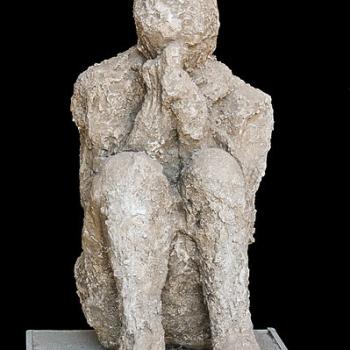In the “Dear Padre” piece on the back of our church bulletin this past Easter Sunday, Fr. Matthew Bonk, CSsR responds to the question “Why aren’t heaven’s gates open to all humanity? If God loves everyone, why aren’t all of us saved.”
I realize it may shock you that someone reads church bulletins. I used to read course syllabi, too, in my student days. But once you’ve digested this improbable truth, note the problem with the question: that it takes for granted as doctrinal truth that not everyone is saved. And this is a mistake.
This topic has been bouncing around a bit in the past couple of years, though it is not new to me, since I first encountered it many years ago in a theology class at a university well known for its conservative positions. The professor, a genial and magnanimous man, presented von Balthasar’s idea that we dare hope that all shall be saved, and this immediately clicked into place in my head: it aligned with what I understood from my philosophic studies about the nature of freedom, our understandings of the divine, and basic logic. It seemed so eminently sensible a view, I couldn’t imagine anyone taking a contrary position without a concomitant malice against humanity. It ought to be perfectly clear that recognizing universal salvation as possible is not the same as believing universal salvation to be guaranteed (though universalism and the theory of apocatastasis are my very favorite heresies, since they’re so delightfully generous) – but apparently using the words “all” and “saved” in the same sentence is a perilous business.
I hoped that Fr. Bonk would clarify the difference between saying all COULD be saved and saying all WILL be saved. I hoped he would remind the readers that, while we must always maintain a belief in the possibility of hell, there is no guarantee anywhere that any human will ever end up in it. But instead he replied thus: “Not everyone is saved because God wants us to choose salvation freely.”
Keep the second clause, discard the first, and you have a true statement. But as long as the first clause remains, what we have is actually a contradiction. If it is true that God wants us to choose salvation freely, there is nothing in the law of probability to ensure that out of even billions, one person absolutely must choose damnation. However, if God wants us to choose freely, and still someone is damned, this suggests that it was somehow necessary for at least one person not to choose salvation. And if this were the case, the choice would not be free. Moreover, this presupposes a sort of tabula rasa or situational vacuum, in which there are no extenuating circumstances. It also eliminates the role of the intellect and puts the emphasis, all Kantian-like, on pure will alone. But I very much doubt that many situations arise in which persons are able to choose with absolute freedom, with intellects unsullied by prejudice or manipulation, with minds attuned perfectly to the distinction between good and evil.
But let’s suppose that we are all unleashed in existence with this level of absolute Pelagian control over our wills and destinies, with perfect intellectual comprehension. Let’s imagine that, in these circumstances, 100 people are presented with the choice between filet mignon and a crappy fast-food burger. If someone were to ask, “but why can’t everyone have filet mignon?” – the correct answer would be “everyone can. Some might choose to eat the crappy fast-food burger instead, but the option to eat filet mignon is available to every single one of you.” Really, though, if our wills and intellects are so unsullied, wouldn’t everyone eat the filet?
True, as the numbers increase, the probability that all will choose the filet mignon grows slimmer, but never entirely disappears. And, again, this is assuming a situational vacuum with a perfectly pure Kantian or Pelagian will. The reality of human choice is far murkier. Recent findings in neuroscience suggest that the freedom of our will is far more limited than we imagine, as this article in the Scientific American reports. Philosophically, the discovery that “the brain acts before the mind decides” does not negate free will, but does mean we must consider it as functioning with parameters far less broad than we’d like to imagine, and that our concept of “freedom” is not necessarily identical with that of “free will.”
Considering the possibilities for manipulation, brainwashing, superego, heteropathic identification, fear, faulty ideologies, and the stupefying effects of original sin, even if a person chooses the crappy fast-food burger rather than the filet mignon, it’s possible that this can’t genuinely be considered a free choice of the will. If the will remains insufficiently free to choose one thing or the other – what next? Purgatory, maybe.
The response that we need to fear hell because otherwise we won’t avoid sin is juvenile. Do we really avoid sin due to fear of hell? Fear of hell is a moral factor on the lowest rung of ethical and religious development – and, thus, not a very strong deterrent to sin. The person who quivers in fear of hell one moment is likely to move on from this transient emotion and go right back to sinning the next. Moreover, the people who advise against presumption are not, typically, hermits living in the wilderness eating locusts and dressed in camel hair. If they were, I might take them seriously, but most of them are comfortably ignoring most of Christ’s commandments, just as I am (I’m still afraid, but that doesn’t seem to make much difference).
It also seems to me a simplistic appreciation of the complexity of human action, to boil down a whole complicated life into a single choice between two clear rival goods. It really isn’t like filet mignon vs a crappy burger at all. Very rarely are we faced with choices of such earth-shattering significance that an ascent to heaven or a tumble to hell is the obvious consequence. Generally we choose in the midst of conflicting motivations, trying to sort out rival goods.
A lot of what we Catholics believe sounds insane or far-fetched, but the doctrine on Purgatory strikes me as eminently sensible, and possibly the terrain we should visit imaginatively, when questions about salvation and damnation arise.
Image credit: High resolution scan of engraving by Gustave Doré illustrating Canto XIII of Divine Comedy, Inferno, by Dante Alighieri. Caption: Harpies in the Forest of Suicides. Public Domain in the US. https://commons.wikimedia.org/wiki/File:DVinfernoForestOfSuicides_m.jpg












